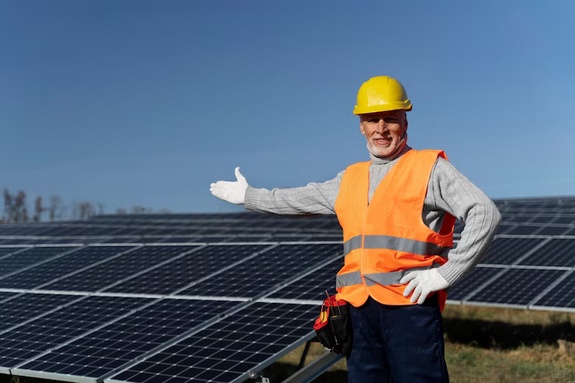As the world continues to embrace renewable energy solutions, solar panels have become a cornerstone in the quest for sustainable power. However, with the increasing adoption of solar technology comes the challenge of managing solar panel waste at the end of their life cycle. This article explores the importance of eco-friendly disposal methods for solar panels, emphasizing the need for sustainable practices as the solar industry continues to flourish.
Rise of Solar Energy and the Waste Challenge
The global shift towards renewable energy has propelled the solar industry to new heights. Solar panels, consisting of photovoltaic cells that convert sunlight into electricity, have become a popular choice for harnessing clean energy. While the environmental benefits of solar energy are evident during their operational life, the disposal of solar panels poses a unique challenge. Traditional disposal methods, such as landfilling, can lead to environmental harm due to the presence of hazardous materials like cadmium and lead in solar panels.
Understanding Solar Panel Composition
To address the waste challenge, it is essential to understand the composition of solar panels. Most solar panels are made from materials like silicon, aluminum, glass, and various metals. While these materials are generally inert and pose minimal environmental risk during the operational life of solar panels, the challenge arises when these panels reach the end of their life cycle. Thin-film solar panels, for instance, may contain hazardous substances such as cadmium, making responsible disposal imperative.
The Environmental Impact of Improper Disposal
Improper disposal of solar panels can have far-reaching consequences for the environment. When solar panels end up in landfills, the potential leaching of hazardous materials into the soil and water poses risks to ecosystems and public health. Furthermore, the loss of valuable materials that could be recycled exacerbates the environmental impact. Addressing the disposal challenge is crucial to ensuring that the environmental benefits of solar energy are not compromised by the negative consequences of panel waste.
Promoting Circular Economy Principles
The concept of a circular economy, where materials are reused, recycled, or repurposed to minimize waste, has gained prominence in sustainability discussions. Applying circular economy principles to solar panel waste disposal involves adopting practices that prioritize recycling and resource recovery. By doing so, the solar industry can contribute to a more sustainable and closed-loop approach, reducing the environmental footprint associated with the disposal of end-of-life solar panels.
Challenges in Solar Panel Recycling
While the idea of recycling solar panels aligns with sustainability goals, challenges exist in implementing efficient recycling processes. Solar panels are designed to be durable and weather-resistant, making the extraction of valuable materials a complex task. Additionally, the variety of materials used in solar panels requires advanced technologies for effective separation and recycling. Overcoming these challenges is essential for establishing a robust and economically viable solar panel recycling infrastructure.
Eco-Friendly Disposal Methods
Several eco-friendly disposal methods are emerging to address the solar panel waste challenge. Recycling facilities dedicated to solar panels are being established, utilizing innovative technologies to extract and process materials efficiently. Some companies specialize in refurbishing and repurposing solar panels for secondary applications, extending their useful life. Additionally, research is ongoing to develop new techniques for the safe and efficient recycling of different types of solar panels.
Government Regulations and Industry Standards
Governments and international organizations are recognizing the need for regulations and standards to govern the disposal of solar panels. Many countries have implemented or are considering regulations that mandate the responsible handling and recycling of solar panel waste. Industry standards are also evolving to guide manufacturers in designing products with end-of-life considerations, fostering a more sustainable approach to solar panel production and disposal.
Encouraging Corporate Responsibility
As the solar industry matures, corporate responsibility plays a pivotal role in shaping the environmental impact of solar panel disposal. Companies involved in the production and installation of solar panels are increasingly acknowledging the importance of taking responsibility for the entire life cycle of their products. This includes investing in research and development for sustainable materials, supporting recycling initiatives, and adhering to environmentally conscious practices.
Conclusion
In conclusion, the journey towards sustainable energy sources, such as solar power, requires a holistic approach that extends beyond the operational life of solar panels. The eco-friendly disposal of solar panel waste is a critical aspect of this journey, ensuring that the environmental benefits of solar energy are not compromised by the negative impacts of improper disposal. As the solar industry continues to grow, embracing circular economy principles, developing efficient recycling processes, adhering to regulations, and promoting corporate responsibility are essential steps in navigating the path towards a more sustainable and environmentally friendly future for solar panel waste disposal.


No comments yet